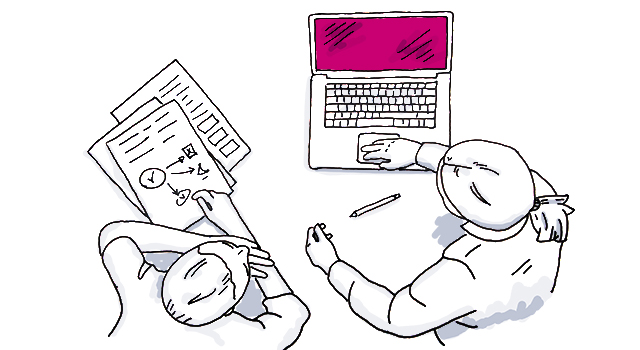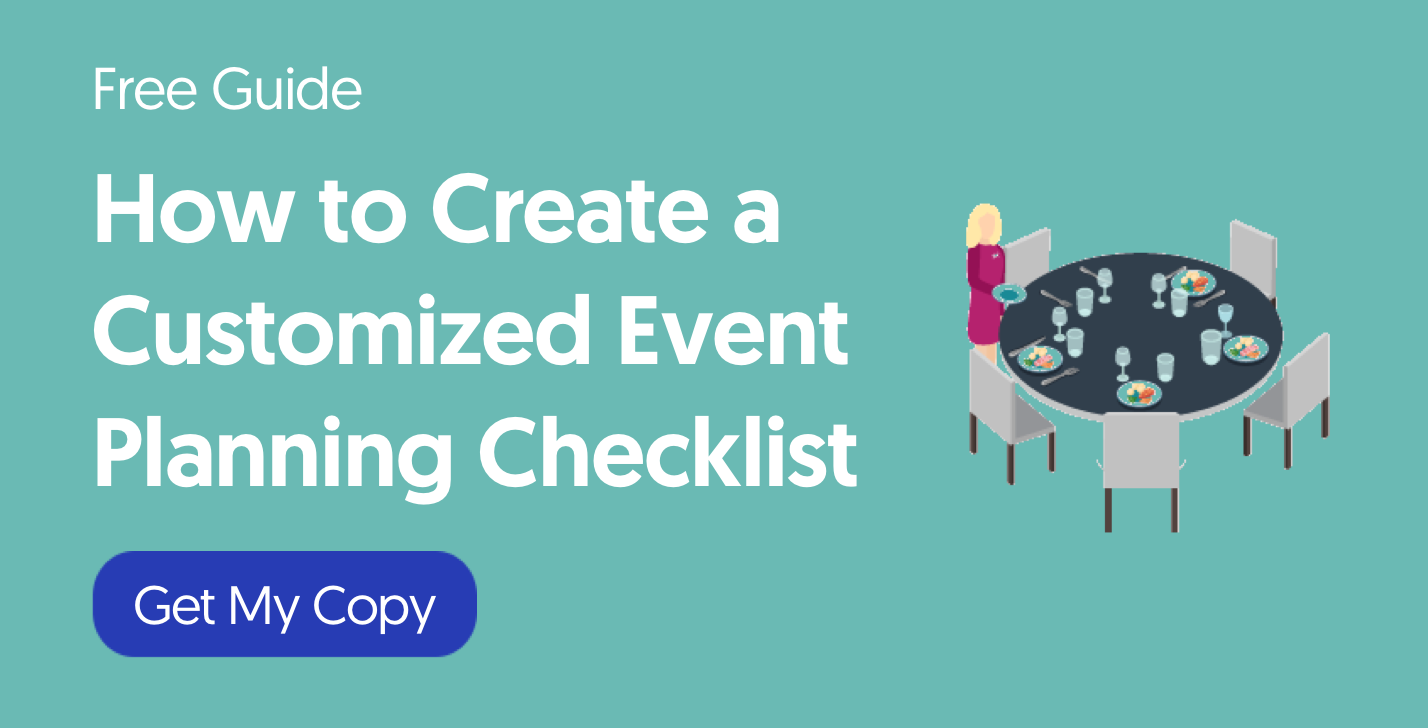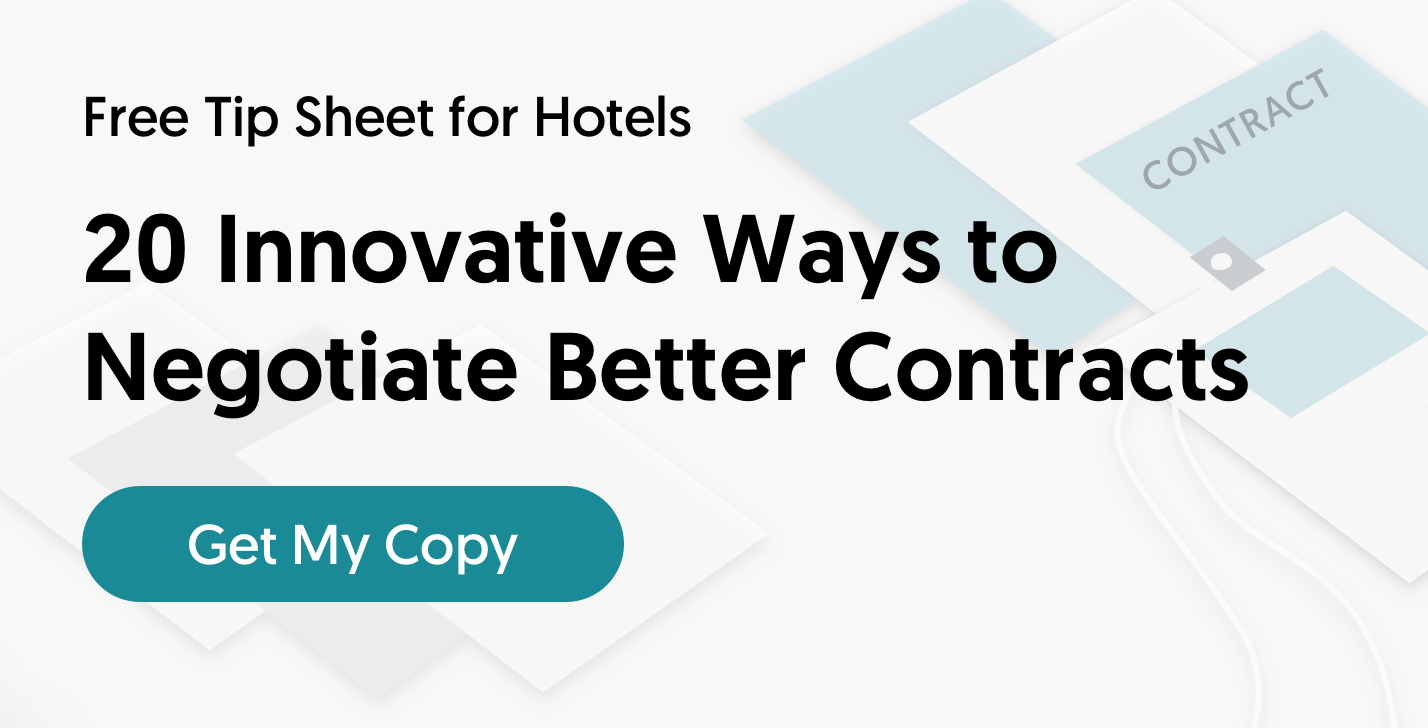
Monday Motivation: The Best Free Event Planning Documents & Ways to Maximize Using Them
Think of event planning documents as your event’s road map. This important paperwork guides you through each stage of planning events, and the documents must be detailed, easy to understand, and always at hand.
Thankfully, there are resources and responsive event planning tools that help keep your essential documents accessible and organized. Just like road maps, today you’ll find most event planning documents in digital formats. Read on to discover sources of free event planning templates, as well as tips and tricks to optimize and organize your event documents.
- Quick-start List of 9 Free Event Planning Document Templates
- How to Optimize and Organize All Your Event Planning Documents
Quick-start List of 9 Free Event Planning Document Templates:

These are good starting points to build your own library of planning documents. Add your company branding to give all your documents (especially client-facing ones) a professional finish.
1. Event timeline:
This comprehensive event timeline template is easy to use and covers events with three different lead times: 14 days, 90 days, and 6+ months. It is courtesy of Australian events company Enhance Entertainment.
2. Client contract:
Here’s a straightforward event planning client contract from digital signature and sales document company Docsketch. You can skip entering your email address and go straight to download”it’s an option under the blue oval send it to me button.
3. Event budget:
Here’s a straightforward Excel event budget spreadsheet. Customize the line items to your needs, and the spreadsheet will calculate the expected versus actual event expenses and income, and display them in a clear, professional graph. Worth a look even if you have your own budget spreadsheet.
4. Event management tracker:
This event management tracker from MS Office helps you track expected and actual event employee hours, as well as costs across job categories. It’s best suited for corporate planners.
5. RFPs:
Find easy-to-customize sample RFPs for venues and vendors from the Events Industry Council.
6. Marketing timeline:
Smartsheet offers a helpful free event marketing timeline already set up in Excel and ready for you to tailor for your events.
[Tweet “Just like road maps, today you’ll find most event planning documents in digital formats.”]
7. BEOs:
Event planning software, such as Social Tables Sales & Catering CRM can generate BEOs automatically. These key documents collect a lot of information in one place, so they should be both detailed and simple to read.
8. Run of Show:
This straightforward Run of Show template from The AV Company has three tabs: instructions, the template itself, and a detailed example you can learn from.
9. Feedback/evaluation:
Typeform’s Post-Event Satisfaction & Feedback Survey is one of the most engaging on the market. The free version lets you gather 100 responses per month.

How to Optimize and Organize All Your Event Planning Documents:
1. Event planning checklists
Event planning checklists are like shoes: You need the right type for the job, and one size definitely does not fit all.
Even events of the same kind”say, fundraisers”can have very different planning checklists. If you’re planning a gala for the symphony and a Fall Fun Run and Raffle day for an elementary school, your two checklists will be as different as dress shoes and top-notch running sneakers.
The gala’s checklist might include items related to A/V, stringent venue guidelines, and a marketing strategy that courts top donors from past years. The Fun Run on school grounds will likely include volunteer management and scouting event sponsors who want to reach an audience of families with young kids.
Use Social Tables’ guidelines to create a customized planning checklist for every event on your docket.

2. Event RFPs
The key to RFPs is to clarify your event requirements so venues and vendors can demonstrate their ability to meet them. How comprehensively they respond to your RFP is also a good indication of their professionalism. Do they answer all of your concerns and give you all of the information you request? That’s a good sign. To refine these important documents, check out our 6 secrets to writing the best event RFPs.
3. Event contracts
Among the most important of your event planning documents, event contracts ensure you are compensated for your expertise, and venues and vendors fulfill their responsibilities.
Client contracts: A watertight client contract protects you and your client from unexpected situations and unprofessional behaviors. Explore this list of 6 things to include in your event planning contract to make sure you have all of your bases covered.
Venue contracts: Clearly, this contract is central to the success of any event. Make sure you know how to negotiate win-win venue contracts.
F&B contracts: Don’t sleep on the F&B clauses. Pay attention to minimums here”whether you think you might go under or over.
Let’s say the contract has a $10,000 F&B minimum. If your group only spends $9,000, how much will you be responsible for? It will probably be between 60 and 70 percent of that final $1,000, or $600 to $700, but make sure it’s clarified in the contract or your client could be charged the entire $1,000.
What if you expect the event will significantly exceed the $10,000 F&B minimum. Consider proposing a clause in the contract that raises the minimum to $14,000 and includes a 5 percent discount for your group room booking.
Speakers or performers: A clear and detailed contract protects both the planner and the speaker/entertainment. Check that the contract includes outcomes for both parties for cancellations, the timing of performances, the time the venue will be available for set up and break down, and any intellectual property considerations (a common issue with livestreaming).

4. Event timelines
The template above will get you up and running whether your timeline is measured in weeks or months. But for best results, you’ll want to customize your timeline for every event because each is unique. Some events will need an early marketing timeline to spark engagement, others will include finalizing special dietary requests, while others will offer a late event registration option. Learn how to create a long-term event planning timeline.
5. Event budgets
Event budgets are also as varied as events themselves, but the best ones have these things in common:
They separate fixed and variable costs. Fixed costs don’t change depending on the number of event attendees (e.g., venue, A/V, marketing, entertainment). Variable costs change based on guest count. (e.g., room rentals, meals).
They’re as detailed as possible. For an all-day event, a line item budgeting $1,000 for food and drink is too broad. Instead, the budget should detail the expected budget of breakfast food items, coffee, juice, lunch, and snack platters.
They reveal any gaps (over or under) between expected versus actual spend. This information can help you refine your budgets for future events so you are always within budget.
To avoid unpleasant surprises, check out 20 of the top hidden costs in event planning. And for tips on proving event ROI and increasing your event budget, download our free event budget ebook.
6. A/V checklists
Whether you’re tech savvy or not, take a look at the ultimate event A/V checklist from Social Tables. It has a basic A/V checklist, seven steps to customize the A/V checklist to your event, and five layout questions that event planners should ask their A/V company.
7. BEOs
The BEO is what everyone in the venue uses to make sure they’re rowing in the same direction. It’s also a legally binding contract, so it pays to review this paperwork thoroughly before signing.
Your BEO should include A/V requirements from projectors to power strips; down-to-the-minute scheduling for galas or receptions; the bar open and close times; and the menus, course order, and schedule for meals and beverages, including any special dietary requests.
The BEO should also note unusual details, such as a couple that doesn’t want to do the traditional entrance, short turnaround times for speakers, or decaf-only coffee after a certain hour during a business conference.
8. Run-of-Show
On the day of the event, there is no more critical document than the run-of-show. It contains contact info for key players to the event’s success: planner, speaker, venue, A/V tech, security, catering, photographer, logistics manager, PR agency, MC, etc.
It also gives a detailed schedule for all aspects of the event: when the venue opens, vendor arrival, setup, presentations, cues for lighting, video, and other stage needs, meal service, and breakdown, to name just a few. The run sheet also lists where everything takes place, and who is the point person for each element.
Everybody should be supplied with a copy of the run-of-show. This document is a prime candidate for storage in a cloud-based tool such as Social Tables that is easily accessible to the entire team at all times.
9. Follow-up, feedback, & post-event evaluations
Despite your aching feet, the event isn’t over when the guests have gone home. You can’t call it a wrap until you’ve implemented your post-event evaluation plan. Design your post-event survey early in the event planning process because it should be based on your event goal. For the top event follow-up questions and tips on making your feedback survey, check out our post on creating the best post-event evaluation plan.

Now You’re Ready to Get Started with Event Planning Documents!
Planning documents lay the foundation for any successful event. Thoughtfully designed and utilized, they protect you, keep the puzzle pieces in order, and allow you to visualize complex events from all angles. They also keep you, your team, the client, the vendors, and the venue on the same page”which ultimately ensures event guests have an outstanding experience.
Learn how Social Tables’ event management software can help you store essential documents for your clients and your team. Or, improve your organizational skills with these creative event planning tips.
Still have questions about event planning documents?
To plan an event template, make sure you include provisions for each of the following categories: event timeline, event contract, event budget, event management trackers, RFPs, a marketing timeline, BEOs, run of show, and feedback/evaluation.

